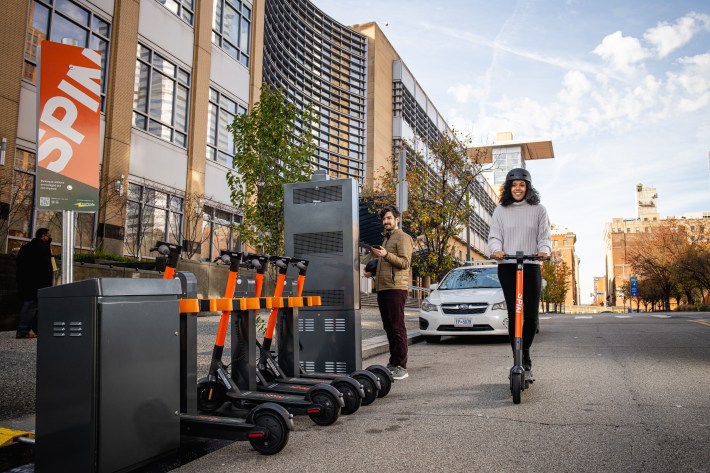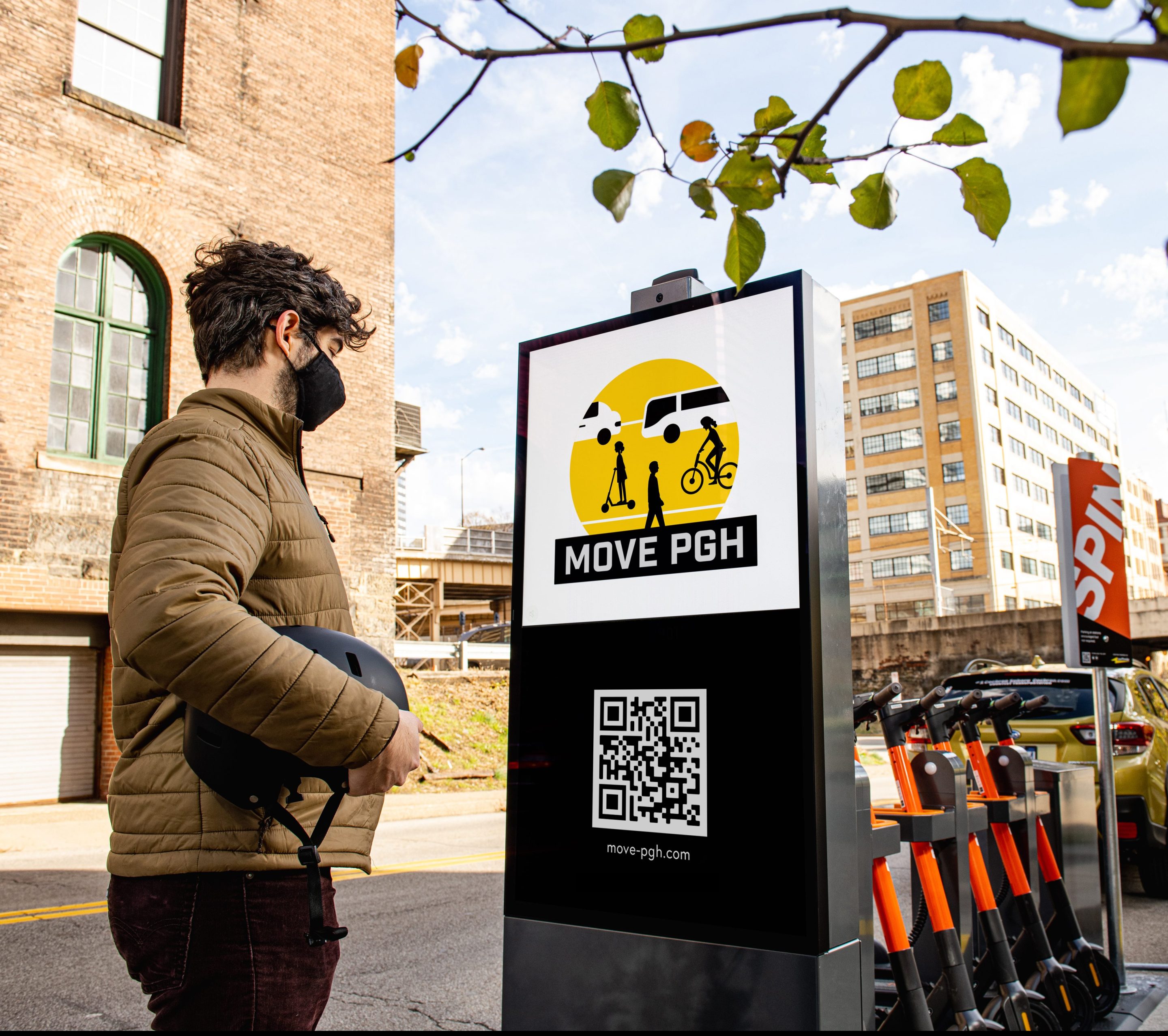Pittsburgh just became the first U.S. community where every resident can feasibly and affordably trade their private cars for an app.
Today, the Steel City will launch its long-awaited Move PGH pilot, which is being touted as the first comprehensive "mobility as a service" (MaaS) app in United States history. Under the program, residents will be able to pay their bus fares; rent micromobility vehicles such as electric bikes, mopeds, and scooters; find someone to carpool with; and, when absolutely necessary, rent an automobile for a few hours — all under the umbrella of the Transit app, which is already used by 40,000 residents of the city, 79 percent of whom do not have access to a private vehicle. And if they want to take multiple modes in a single trip, they'll be able do it all without leaving the app, or re-entering their credit card information over and over — at least when all the kinks are worked out.
City leaders say transit agencies in other communities have attempted to build their own bespoke MaaS platforms before, but struggled to solve the sticky and expensive problem of how to charge residents a single fare for trips that involve more than one mode and/or more than one operator, many of whom are in competition.
"The goal, eventually, is seamless fare integration," said Karina Ricks, director of the Pittsburgh Department of Mobility and Infrastructure, which initiated the project. "What we want, over time, is to be able to say, 'This transportation network and everything in it, it's all one system, and your trip's gonna be a flat $3, end to end, even if you’re using three different [shared] modes along the way.' We can parse out the revenue we take in among the different operators on the back end, so the user doesn’t need to worry about that. We can implement a subsidy on parts of that journey if a rider is low-income, or to encourage them to use something more sustainable. We can do all that for them, and make it as easy as possible — because all the user wants is to get from where they are to where they need to go."
To achieve that vision of fare singularity, Pittsburgh's strategy was to let private companies do the heavy lifting — with a heavy dose of public partnership.
In response to a city request for proposals, Scooter company Spin brought together the five micromobility providers who will be involved in the pilot — the company itself, plus local bike company Healthy Ride, car rental company Zipcar, carpool app Waze, and moped company Scoobi — and convened with local transit and parking authorities to integrate all their services under the Transit app banner. In exchange for the exclusive right to operate their respective modes in the city over the course of the two-year pilot, Pittsburgh will get to set the goals for the partnership, and the program won't cost the city anything.
"What we said to these providers, essentially, is that they need to push the envelope with us," said Ricks. "We’ve put a pretty simple challenge in front of them: As you evolve your service, we want to solve for two use cases — how to transport a parent with a school-age child who needs to get their kid to class on their way to work, and how to transport a commuter who's carrying more than two bags of groceries. And as they do that, they also need to bear the costs of making it possible for a rider to pay fares and reserve vehicles across modes, all in one app — and that's not cheap."
All that new digital infrastructure investment will be complemented with some new physical infrastructure, too. In an unusual display of multi-modal collaboration, the micromobility operators in the collective have committed to maintaining 50 new "mobility hubs" near existing transit stops to encourage riders to use freshly charged bikes and scooters for the first and last miles of their journeys (docking company Swiftmile will provide the chargers) with larger-format vehicles readily available to rent nearby when they're needed. New TransitScreens will provide real-time light rail and bus information, while also nudging commuters towards the larger basket of shared mobility options to complete their journey without a private car.

The innovative new program was born after a 2019 summit and years of intense public engagement revealed just how many Pittsburghers' mobility needs were going unmet by existing shared transportation options and the universe of apps upon which they rely. Only about 20 percent of city residents do not have access to a private vehicle, but over 65 percent of low-income households fall into that group — and without affordable and convenient shared mobility options to fill the gap, meeting the most basic needs, much less achieving social mobility, for which reliable transportation is critical, can be challenging.
"[Many residents] are saying, 'It’s all I can do to scrape together enough money for my $100 monthly bus pass; I can’t afford a scooter ride on top of that,'" said Ricks. "'Or, 'If I'm late to work a few days a week because the friend with a car who I rely on is unreliable, how can I really advance, without getting stuck in a cycle of entry-level jobs?' But what if we said, 'We’ve got you. Transportation is one less thing you have to worry about. And if the scooter isn't available, there’s a plan B, C and D'?"
In tandem with the launch of the Move PGH program, local foundation partners have also funded a Universal Basic Mobility pilot, which will cover the cost of the entire suite of transportation choices for 100 low-income residents for a six month trial period. A team of Carnegie Mellon researchers is also being invited study the impact of the program, and if it's successful, the city hopes to scale it to more residents — and the mobility companies involved may expand the model to other cities.
"We’re really eager to see what happens to people when they’re given mobility as a right, and what that does to their social mobility," said Ben Bear, CEO of Spin. "Now we have to study if it works – and if it does, we want to bring it to as many places as we can, as quickly as we can."






